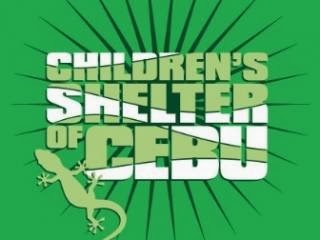GAML
IBALATU YEAR 15—BUL YEAR 16
Refreshing like rain are my words,
distilling like dew is my speech,
like cloudbursts upon the grassland,
or rainfall upon the young crops.
BARUK CAME OUT OF Danil’s house and set off across the ridge towards home. After completing his childhood and passing through the ceremonies to be counted as a young man of the community, he had deliberately set out to be noticed by Danil and the others of the raiding party. So far he had not succeeded in being really included in that group, and Danil’s own son was too different in age from him to make anything to his advantage out of a potential friendship, but he entertained hopes. Bashur, almost the same height despite their year separation in age, followed him as closely as possible and was clearly attempting to make every available use of the sibling relationship. Today, Baruk had managed to spend time with Danil without his brother. He smiled to himself as he joined the main track down from the high place. He was genuinely fond of Bashur, for all his over-close attachment, and most of the time was happy that he was there with him like a shadow. Though they were not twins, they understood each other’s moods and feelings better than most brothers or friends, even when they disagreed over their thoughts and opinions. Mostly, he appreciated Bashur’s presence nearby. Some days, though, it was good to go on his own.
He heard his name being called, and turned to see Damariel hurrying down towards him from the high place. He waited until he caught up with him.
“Just going home?”
“Yes. Dad let me off some time in the olive field this afternoon. Reckoned we’d done enough for the day or something. So I took the chance to spend a bit of that time with Danil.”
“That went well?”
“Yes. He’s always helpful, whenever I ask he’s happy to talk to me about how the raids are done. I’m learning a lot. There’s not so many of them go regularly, never quite enough for what they want to bring back. So I think I can talk my way into going with them if they think I’m keen. Well, and if I know what I’m doing.”
They walked a bit further in silence together.
“Been up with the seer, then, Damari?”
Damariel nodded.
“And what did you learn today?”
“He’s been teaching me these last months how to read not just our own writing, but the older stuff too. Like they used way back before our time. Actually they still do in the big towns, and if you have to write to the Mitsriy ever.”
Baruk nodded, not especially interested yet in the topic, but before he could speak, Damariel rushed on with enthusiasm.
“Baruk, I never knew before today that a woman from here, from our own town, wrote to the Mitsriy governor once.”
“Oh yes? What did she say?”
“Nothing much, really, just warning him about a big raid between two of the nearby towns. The usual double-dealing and trickery they do in those other places. But she wrote to them, Baruk, and they took notice. She called herself the lady lioness and they thought she was like our queen.”
Baruk laughed.
“They didn’t know much about us, then. Though the lion bit wasn’t far off.”
Damariel joined in the humour.
“No, I suppose not. But they took notice of her all the same. Respected her.”
“She can’t have been from mum’s family or we’d have heard about her years ago. If there was anything like that in her ancestors she’d have told us.”
“That’s true. I don’t know if she was a chief’s wife or the seer at the time, or even just one of the village women who could write. But I saw the copy of what she wrote and have been puzzling over it all morning.”
At that point they both stopped and looked back up the hill. A sudden shouting had started somewhere up near the high place, men’s voices raised in fierce anger. Baruk took a step or two back up the hill, but Damariel stopped him.
“Do you think we ought to?”
“Are you kidding? Whatever it is, I’m not going to miss it.”
They set off again along the ridge, and started running as the shouting began to grow louder. Like them, others were coming out of houses, looking, and starting to gather together up at the heart of the community. At the stones, Ethan the shepherd, his large face red and his large fists clenched, was being held away from Iqnu by three of the other men. Qerith had pulled her kef down over her face and was facing away from them off to one side, leaning on the wall of the seer’s house, her expression completely hidden. The two boys joined the gathering circle of villagers, Baruk pushing through to the front so they could see, and Damariel following. Ethan took a breath and shouted something incoherent at Iqnu; the only words they could make out in the whole tirade were “Isheth” and “while I was away”. Beside him, Baruk heard Damariel gasp.
“What is it, Damari? What’s this about?”
Damariel shook his head, his eyes fixed on Iqnu who was looking around at the ring of villagers, clearly trying to elicit sympathy or help from the assembly. One of the older lads nearby heard the question.
“Ethan says the seer took his woman for himself. While he was away up along the ridge with the flocks. Just before you came he was saying she confessed it all to him when he got back today. Over a year all told they’ve been at it with each other, so he says. Not just once, you know. All while he was away with the flocks. And in her own house, too. Not like it was somewhere else.”
“Is it true?”
“No idea. But Ethan’s all a sweat. Look at him. He’s called the seer both thief and liar, and the seer hasn’t said anything back.”
“Where’s Isheth? What does she say?”
The other shrugged. “Never seen her yet. Maybe she’s got a tale to tell too, but right now she’s not here to tell it.”
Ethan’s parents, Hinnah and Nawar, had arrived. Nawar went over to his son and gripped his arms, waving away the men who had been holding him away from Iqnu. Hinnah went off with Danil’s wife Rivkah towards Isheth’s house. In the sudden quiet they heard Ethan’s voice as he spoke to Nawar. Most of what he said was indistinct, but every so often one word or other would burst out loud. Nawar listened without comment for some time, still keeping hold of his son as though he might burst away at any moment. Qerith moved away from the house to one side and sat on one of the flat stones, her face still covered. Shelomith-Rahmay went and sat with her. Nawar looked very sombre as he turned towards Iqnu, who glanced around the circle again, still trying to gauge whether the mood of the community was for or against him. But before Nawah could speak, Rivkah came running in, across to where Qerith and Shelomith sat, her kef all awry and blood on the sleeve of her smock.
“He’s tried to kill her. Beaten her something terrible. But she’s not yet gone across, not yet. Lady, she needs someone good with healing. Lady, please come and do what you can for her.”
She knelt in front of Qerith, but there was no reply. After a long pause her veiled, hidden head shook once. Shelomith stood up slowly, looking suddenly much older than her years, beckoned to one of the other women to take her place with Qerith, and went off with Rivkah. Someone on the other side of the circle pushed their way through to the front.
“Her brother lives up at Woodlands. Azziy, they call him. Someone should get him. If Ethan’s killed her he’ll want to know about it. The whole family will. It’ll be a matter of honour.”
Nawar thought about it for a long moment, several different emotions playing across his face as he inclined his head reluctantly. But before he could speak, Mahiram’s older voice broke in. “Hear me now, there’s more involved than the honour of two families. It’s a seer’s matter and we need a seer to judge on it now. So yes, send a boy up to Woodlands by all means, but send one up to Giybon as well to get a seer down here to tell us how both Iqnu and Ethan are to be treated. They’ll be here tomorrow. If I’m heard there’ll be no judgement upon anyone’s family before then.”
There was a murmur of acceptance, approval around the circle. Two lads were sent off in different directions up the ridge. Debate began then as to where Ethan and Iqnu should be kept while they waited for others to arrive, but before this could be resolved Rivkah and Shelomith returned with Hinnah, all with torn kef and dust on their head and shoulders. Isheth had not been able to bear her injuries and had gone across. Ethan said nothing, did nothing, but looked away into the distance with no expression on his face. Iqnu grimaced, made as if to tear his own kef but then stopped. Nawar shook his head and sat on one of the nearby stones, head in hands. Qerith shook off the hands of the woman who had been sitting with her, took off her sandals, walked across to Iqnu and slapped him across his face with them, twice, side-to-side, before turning and walking away down the hill. Shelomith went with her.
It was as though Qerith’s actions stirred the community into action, as though they were like a judgement on the case. Two of the men nearby took Iqnu’s arms and led him into his own house. They shut his door and at Mahiram’s word, pushed a boulder against the door so it could not be opened. Ethan turned as though to go with Nawar, but he shook his head and turned away. Ethan stopped short, clearly shocked at his father’s response, and hung his head, speechless. Nawar walked away without turning. Hinnah wavered, looking this way and that between the two men, but eventually, with an anguished look at her son, followed her husband down the hill. Ethan was taken away to a hut adjoining one of the empty, unfamilied houses and put inside it, with a boulder against the door just as they had done with Iqnu. The group began to disperse, a buzz of conversation flowing like streams into the tracks and pathways, flooding into the doorways and filling up the individual houses.
The next morning the door of the hut Ethan had been placed in had been broken open from the inside, and the stone outside the seer’s house tossed to one side. Neither Ethan nor Iqnu were there. By the time Azziy arrived from Woodlands, Iqnu’s body had been found at the base of a low cliff just west of the village. He had died in the end from the fall, but before that had clearly been roughly treated. Ethan was nowhere to be found, but a group of the men who went hunting soon found the place where his tracks led away down into the valley, heading north-west towards the lowlands. They followed the trail for a few dozens of paces but then turned back to the village rather than go on. There seemed little point: the trail was perfectly clear but Ethan was not stopping for anything and had several hours start. When Qerith was told she made no reply, but simply moved back from Shelomith’s home into the great house by the stones and waited for the seer to arrive from Giybon.
In fact they came not from Giybon but from Meyim, a married couple called Saniyahu and Halith. Halith went in to be with Qerith, while Saniyahu called a meeting of the whole adult community beside the town gate and heard the whole tale told. Baruk was not there, nor Damariel, as their adolescent status did not qualify them as part of the formal assembly, but they heard of it later. Ethan was publicly declared no longer welcome in the village, though there seemed little chance he would attempt a return. Iqnu, though already dead, was proclaimed no longer a seer among the four towns, and denied any rights to a burial on their land or with his family. Azziy accepted the sum of four times the bride price that had been paid, renounced any further claim that there might be on Nawar’s family, and took Ishesth’s body to rest with her ancestors. Nawar had remained silent as he had weighed out the sum in silver and other goods in front of them all. The house that Isheth had shared with Ethan was to be pulled down and the stones scattered here and there around the village field walls and terraces, and such possessions as were in it would be given to widows and orphans. Only the foundations and a few of the bigger wall-stones would be left to mark the place in the community memory. Saniyahu and Halith were to take up the duty of town ministry themselves, starting right away, that very day. Apparently the seers had already met and decided the matter in an all-night vigil of talk and prayer. A younger couple, not long past apprenticeship, were to take their place at Meyim, releasing them to begin at Kephrath. Qerith, still veiled and silent, speaking only with Shelomith and Halith, packed her few belongings and moved back to be near family just past Shalem.

Buy Now @ Amazon
Genre – Historical Fiction
Rating – PG13
More details about the author and the book
Connect with Richard Abbott on Facebook, Google+ & Twitter
Website http://www.kephrath.com/


























